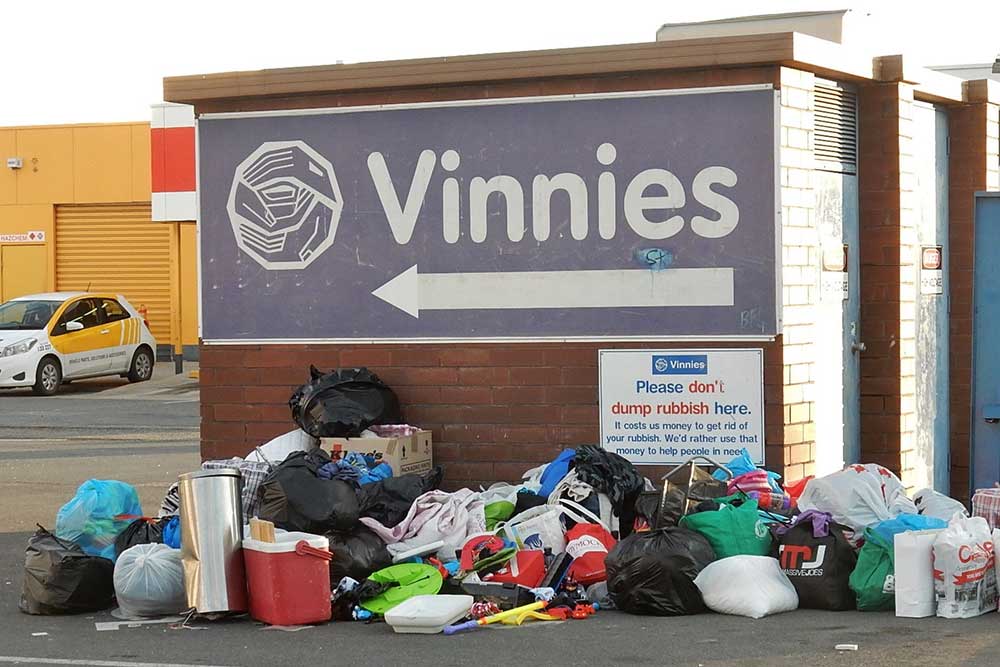
Image: Michael Coghlan.
In times of hardship, the poor and needy often look to charity organisations for a helping hand, but now it’s the organisations themselves looking to the government for a leg up to address the problem of unwanted rubbish being left at their thrift bins.
These bins are usually located outside op-shops or other designated areas outside churches or carparks, and provide an important point for people to offload unwanted clothes, books and other reusable goods, which are then sold off with the proceeds going towards administration and helping the unfortunate.
But often these bins have been abused by people using these sites as dumping grounds for their regular house waste, which has caused significant financial burdens for charities because ultimately they have to foot the bill for the disposal of this illegal rubbish.
It’s become such a widespread problem in Australia, some charities like St Vincent de Paul have been fretting that the high cost of maintaining these bins may lead to the removal of certain bin sites in South Australia.
But in Western Australia, the Colin Barnett government has reached out to these charities by creating a new pilot program to provide financial support to these organisations.
The program dubbed as the Better Practice Program for Charitable Recyclers will implement measures to reduce illegal dumping at charity premises, and will take effect in 2016.
Under the program that the government estimates will cost $350,000 in its first year of operation, it will provide grants to charities to install lighting and fencing, and educate people to discourage illegal dumping.
Charities will also get some financial relief from having to dispose of the household waste themselves, which costs $55 a tonne at landfill sites, as the state government will provide rebates to participating charitable recyclers for the cost of disposing of the waste.
The Department of Environment Regulation’s Illegal Dumping Team will complement the program by patroling dumping hot spots and use covert electronic surveillance to identify offenders.
Western Australian Minister for Environment Albert Jacob said most people do the right thing but the illegal dumping of unwanted goods at charitable premises is a significant and growing problem.
“While Western Australia’s rate of casual littering is coming down, the incidence of illegally dumping rubbish is still very high,” Mr Jacob said.
“When people thoughtlessly dump their damaged or unwanted goods at charity bins and stores, the charity is then left to cover the costs of handling and disposal – which in some cases can amount to many thousands of dollars.”
Mr Jacob said the government is pleased to be working co-operatively with charitable organisations to support their important community work and to protect the environment by reducing the dumping of waste.
“People can help to reduce costs to charities by avoiding donating anything that is broken, damaged, torn, ripped, stained or faulty. If there’s something wrong with the items, then the charity cannot sell them and will have to pay to send the goods to a waste disposal facility,” he said.
The Waste Authority is leading discussions on the program with charitable recyclers including the Red Cross; Good Samaritan Industries; Salvation Army; Spine and Limb Foundation; Anglicare WA; St Vincent de Paul Society (WA) Inc.; Save the Children; People Who Care; and the RSPCA WA.





